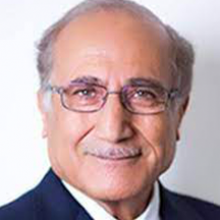You are here
Uproar over decisions
Dec 07,2015 - Last updated at Dec 07,2015
With great discretion, the government of Prime Minister Abdullah Ensour took two separate decisions last week that angered many Jordanians.
Some limited protestations occurred, and anger erupted among some members of Parliament, so eventually the government retracted its decision.
Parliamentarians were aggravated by the government’s decision to hike the cooking gas price by half a dinar and to raise the annual auto licensing fees on SUVs and big sedans.
The decision to increase the price of cooking gas came a month after the government had decreased it by the same amount.
The decision, as explained by the minister of energy, was warranted by a 17 per cent increase of international price of gas; people did not buy that.
As for hiking the licence renewal fees for big cars, it tallies with the energy-saving and gas emission rules recently agreed to at the 2015 United Nations Climate Change Conference in Paris, although the decision was adopted and published during the parliamentary holiday, on November 1.
The government reduced tariff rates collected on imported hybrid and electric cars. Most people who own big cars were infuriated because they will not be able to sell their cars or exchange them without sacrifice.
Owners of hybrid cars are also angry because the decrease in the tariff devalued their already bought cars. They feel that their pro-environment decision to buy hybrid cars caused them to lose money.
Well, isn’t this always the case?
While understanding the government’s rationale for taking such a decision, I really do not accept the underlying logic that the suddenness of the decision was meant to avert speculation by car buyers or sellers.
Such a decision has multiple layers of impact on the economy.
There is the consumption effect, tariff effect, income effect, substitution effect and an environmental effect. All these happen irrespective of whether the decision was openly discussed with the public or taken abruptly.
The decision prompted public anger and talk about the government not caring about people.
The decision, rightly or wrongly, has cemented the government’s reputation as a “price hiker”, and such label will follow it for many years to come, even after it is long gone.
As for electric cars, all ministers now drive them. Ordinary people are waiting for gas stations to provide battery-charging services.
However, what is maddening about the whole assail and hoopla is that the government had failed to explain its decision, and the public was not aware of its contents.
Except for that, the decision was warranted.
The writer, a former Royal Court chief and deputy prime minister, is a member of Senate. He contributed this article to The Jordan Times.











